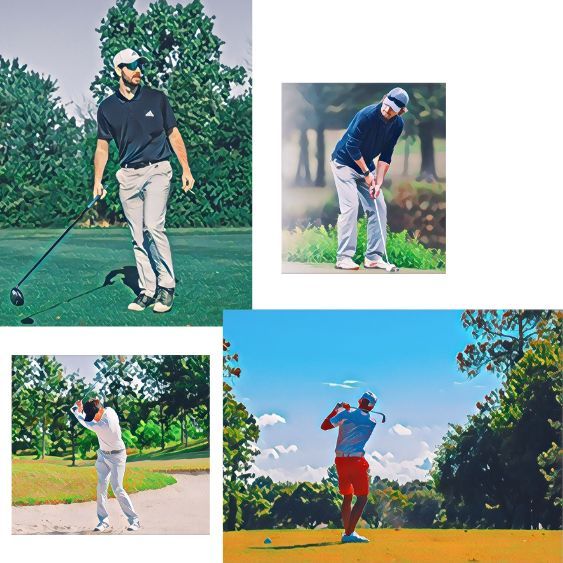If you're a serious golfer, then you know that having a reliable and accurate golf rangefinder is essential to your game.
Golf is a game of inches.
And so, when it comes to choosing a golf rangefinder, you need to make sure you're picking one that's going to give you the most accurate readings.
Otherwise, those inches could mean the difference between a birdie and a bogey. So, how do you choose the best golf rangefinder for your needs? Keep reading to find out.
Picture this ...
You’re out on the golf course, and you’ve just hit your ball. It’s a great shot! But then you realize, you have no idea how far away the hole is.
Do you take a wild guess and hope for the best? ... Of course not!
You pull out your trusty golf rangefinder and get an accurate reading so you can make your next shot with confidence.
Golf rangefinders have come a long way in recent years, and there are now more options than ever before.
So, how do you choose the best golf rangefinder for your needs? Keep reading to find out.
What is a Golf Rangefinder?
A golf rangefinder is a handheld device that uses laser technology to measure the distance between you and the flagstick on the green.
- By taking into account elevation changes and other factors, the rangefinder can give you an accurate reading of how far away the flagstick is so that you can choose the right club for your shot.
- Additionally, some golf rangefinders also come equipped with GPS capabilities, which can be used to measure yardages to specific landmarks on the course (e.g., bunkers, water hazards, etc.).
How Does a Golf Rangefinder Work?
Golf rangefinders work by sending out a laser beam towards the target (i.e., flagstick) and then measuring how long it takes for the beam to bounce back.
Using special algorithms, the rangefinder is then able to calculate the distance between you and the target.
*Most golf rangefinders are able to measure distances up to 1000 yards with an accuracy of +/- 1 yard.
Types of Golf Rangefinders
There are two main types of golf rangefinders: laser and GPS.
- Laser rangefinders are more compact and lighter than GPS units, but they require line-of-sight in order to work properly. This means that if there are trees or other obstacles blocking your view of the flagstick, then the laser rangefinder will not be able to take an accurate measurement.
- GPS units don't have this same limitation since they use satellite technology instead of lasers; however, they are bulkier and heavier than laser units.
Laser Rangesfinder GPS Rangefinder
Pros Lightweight & Compact Accurate Measurements
Cons Line-of-sight required Bulky & Heavy
Best For Serious Golfers Everyday Golfers
When it comes to choosing the best golf rangefinder for your game, it really depends on your individual needs and preferences.
If you're looking for a lightweight and compact unit that can fit easily in your bag, then a laser rangefinder is probably your best bet.
However, if you don't mind carrying around a bit more weight in exchange for being able to take accurate measurements even when there are obstacles blocking your view of the flagstick, then a GPS unit might be better suited for you.
Ultimately, it's up to you to decide which type of golf rangefinder will work best for your game. Here are a few things to keep top of mind:
- Budget
Of course, budget is always a consideration when choosing any type of equipment. Golf rangefinders can vary widely in price, from around $100 to $500 or more.
*Decide how much you’re willing to spend and then narrow down your options accordingly.
2. Features
Once you’ve decided on your budget, take a look at the features offered by different golf rangefinders and see which ones appeal to you.
*Some of the features you might want to look for include slope compensation (which takes into account hills and valleys), vibrating alerts (to let you know when you’ve found the flag), and fog mode (to ensure accuracy in adverse weather conditions).
3. User-friendliness
You don’t want to be fumbling with buttons and controls when you should be focused on your game, so it’s important to choose a golf rangefinder that is easy to use.
*Look for one that has large, clearly labeled buttons and an intuitive menu system. Be sure to read online reviews to get an idea of how user-friendly different models are before making your final decision.
4. Brand Reputation
Finally, it’s always a good idea to buy from a reputable brand that offers good customer service in case you have any problems with your purchase.
*Do some research on different brands before making your decision to ensure that you’re getting a quality product from a company that will be there to help if any issues arise.
With so many different golf rangefinders on the market, it can be tough to know which one is right for you. But by considering factors like budget, features, and user-friendliness, you can narrow down your options and find the perfect fit for your game.
Check out some options:

1. Izzo Golf Range Finders
- for precise slope measurement and a maximum magnification
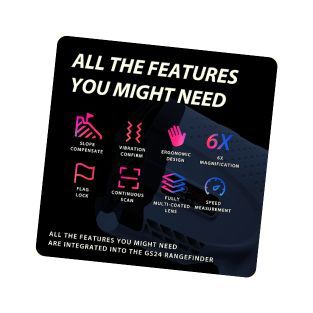
2. Gogogo Sport Vpro Laser Rangefinder
- for Golf & Hunting, with high precision distance measurement
- PEAKPULSE Golf Laser Rangefinder for Golf & Hunting System
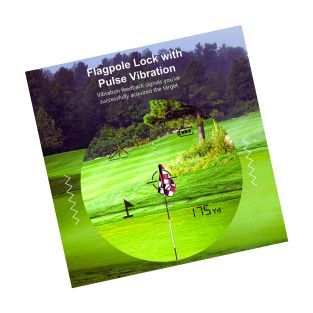
3. PEAKPULSE Golf Laser Rangefinder
- Range Finder Gift, Distance Finder with Slope Mode, Flag Pole Locking Vibration︱Fast Focus System
- For golf and hunting
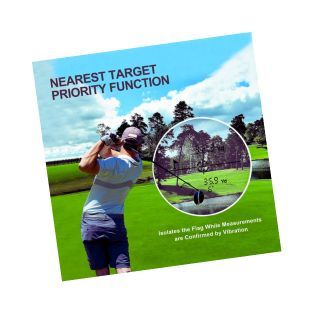
4. ACEGMET Golf Rangefinder
- USB Charging Range Finder Golfing, 650 Yards Golf Range Finder, Flag Lock, and Pulse Vibration Laser Rangefinders, Fast Focus and Continuous Scan Golf Rangefinder with Slope
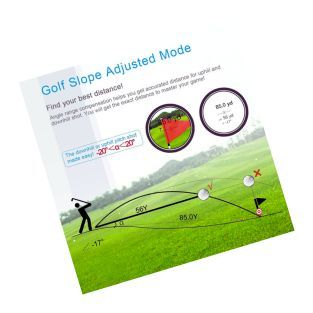
Milseey Professional Laser Golf Rangefinder
- 660 Yards with Slope Compensation,±0.55yard Accuracy, Fast Flagpole Lock,6X Magnification, Distance/Angle/Speed Measurement for Golf, Hunting
And when you have the right golf rangefinder by your side, you’ll be able to confidently take your shots—and potentially even improve your score!
Thanks for dropping by and reading along with us!
Disclaimer.
When you purchase through links on our site, we may earn an affiliate commission. We sometimes use affiliate links to products and services on retailer sites for which we can receive compensation if you click on those links or make purchases through them.





